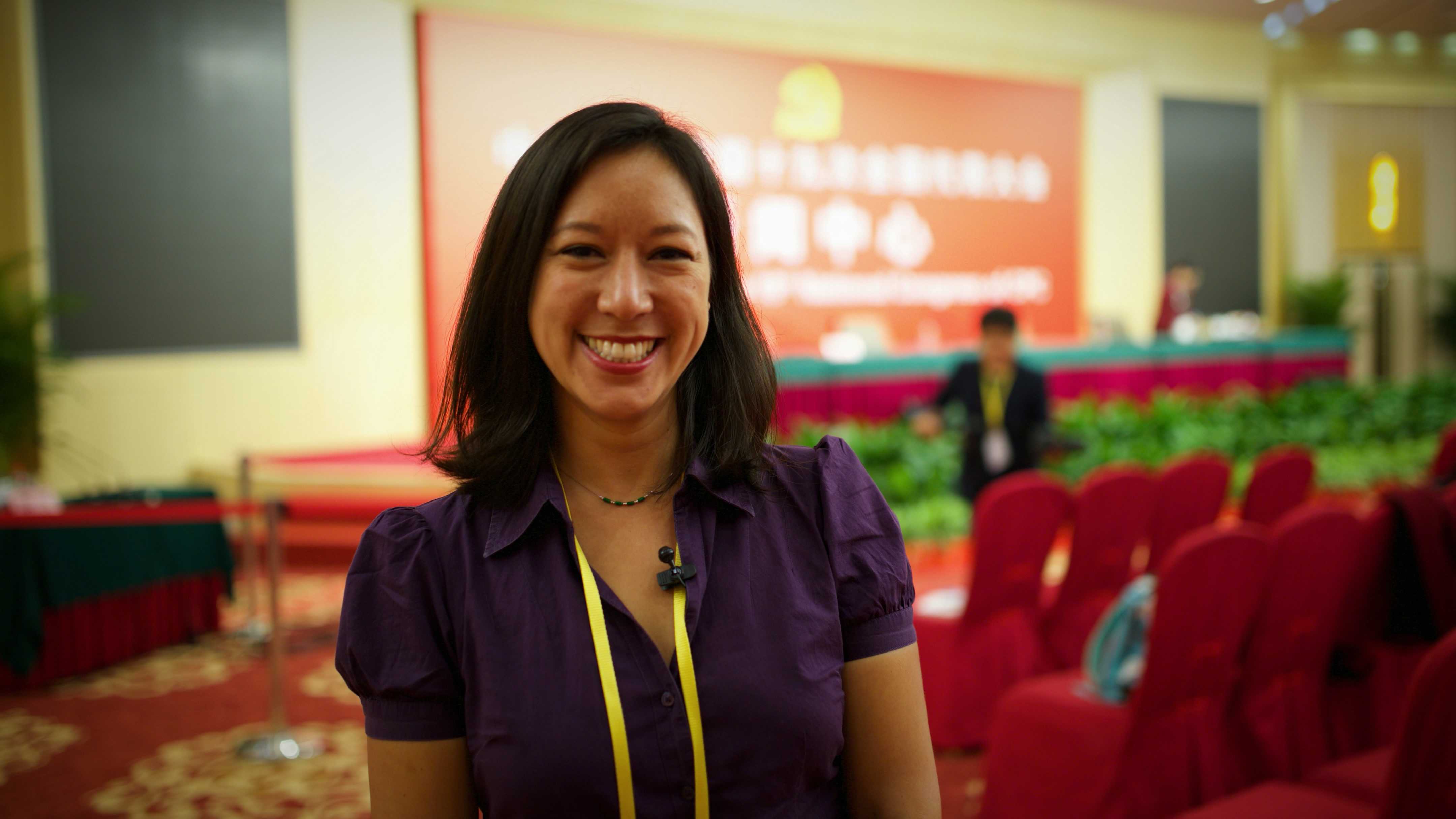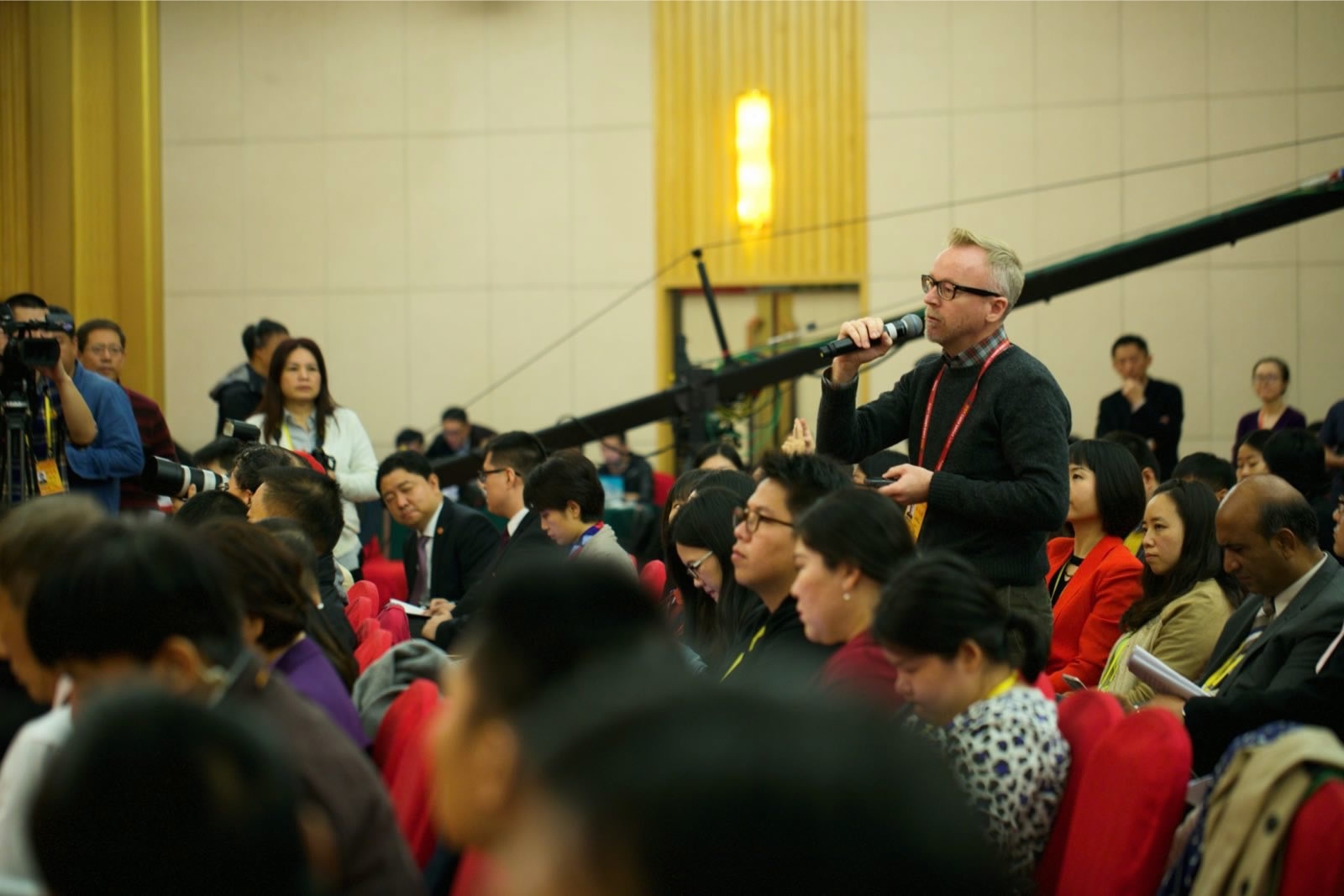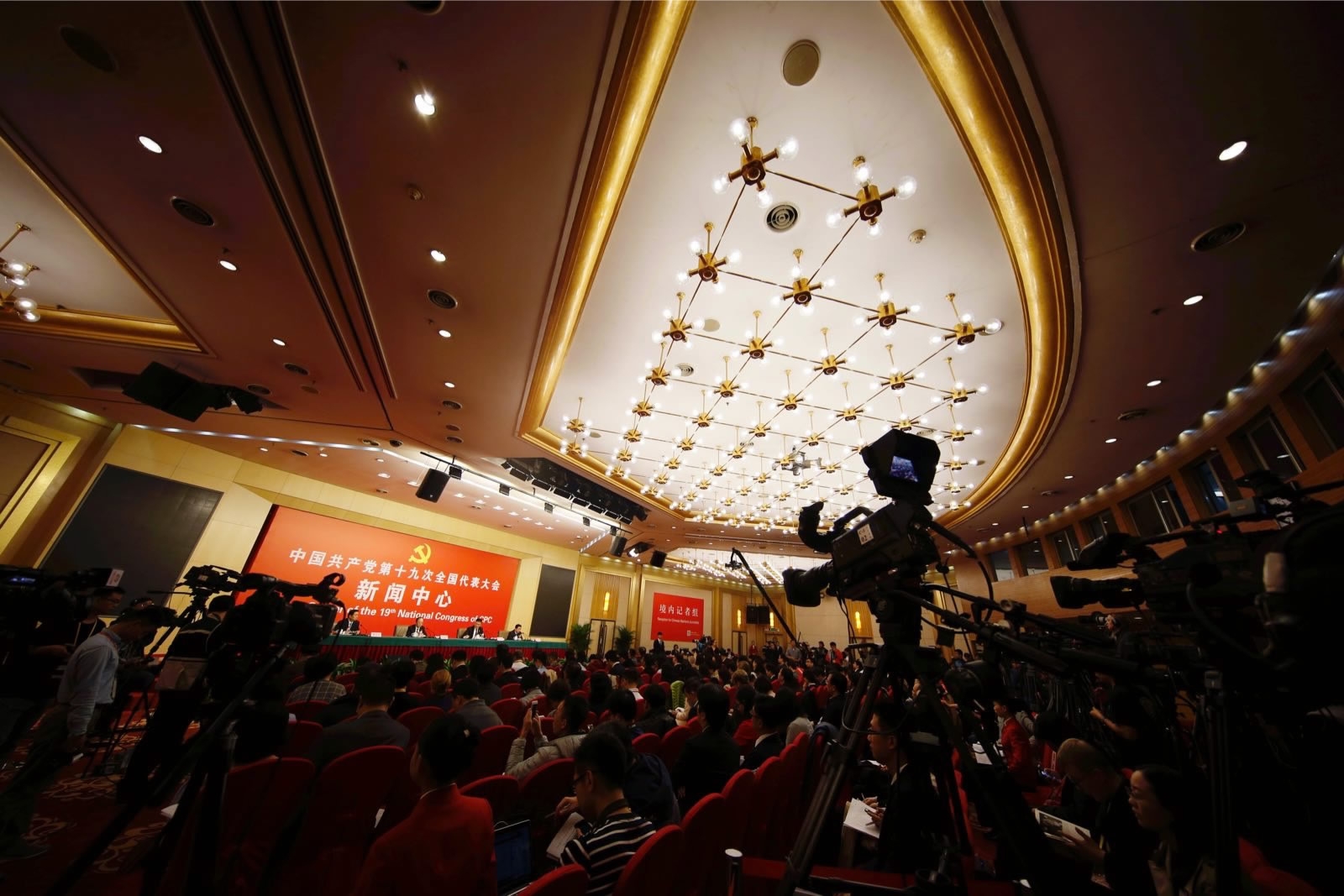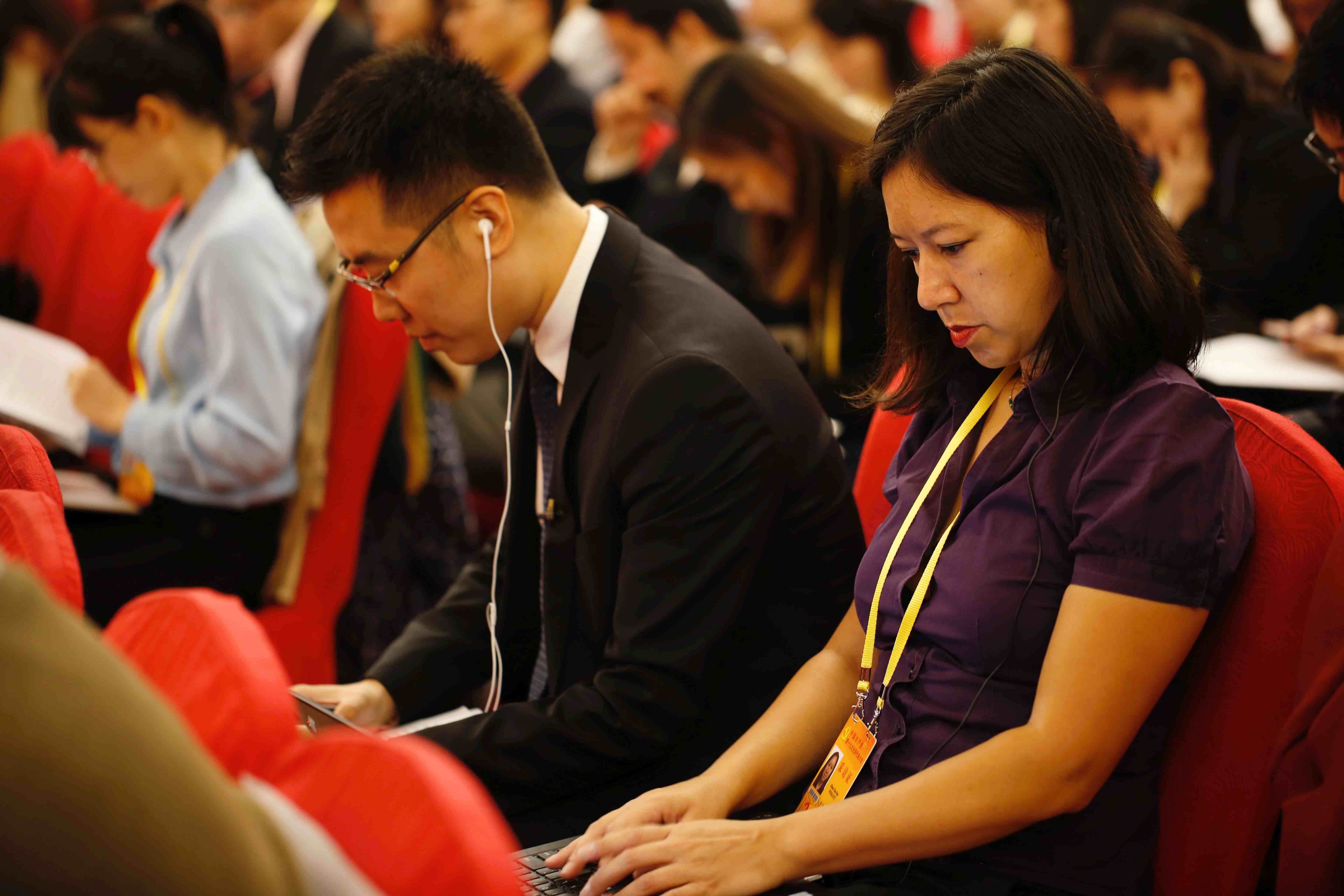
China
23:08, 21-Oct-2017
Reporter’s Diary: A CPC briefing takes an unexpected turn
By Sim Sim Wissgott

The United Front Work Department (UFWD) of the CPC Central Committee. This is not a group one often hears about – especially not outside of China – and its officials do not often meet with the press.
So when I was told I would be attending a press conference with the UFWD on the sidelines of the 19th CPC National Congress on Saturday, I had to do some digging.
A Google search turned up some news articles but few resources with detailed information. A quick chat with some Chinese colleagues was much more useful: The UFWD’s job is to bring together ethnic, religious, social and political groups in China as well as overseas Chinese to support the CPC's leading role in realizing the Chinese Dream.
Still, walking into the press conference, I was expecting a rather dry hour and a half with officials talking about Party policy, achievements over the last five years, and goals for the next five to come.

A reporter asks a question at the third press conference at the press center of the 19th CPC National Congress in Beijing, China on October 21, 2017. /CGTN Photo
A reporter asks a question at the third press conference at the press center of the 19th CPC National Congress in Beijing, China on October 21, 2017. /CGTN Photo
Instead, the briefing covered everything from the refugee crisis in Myanmar to relations with the DPRK and recent Dalai Lama visits to the US and Europe. It almost felt like a Ministry of Foreign Affairs press conference.
Guo Yezhou, Vice-Minister of the International Department of the CPC Central Committee, which is responsible for the Party’s external work, was especially busy answering reporters’ questions about how the Party was tackling crises in neighboring countries.
He talked of “traditional friendly” ties with the DPRK’s Workers’ Party and said further exchanges “will depend on the needs” of both sides, when asked whether relations with Pyongyang had deteriorated over recent nuclear and missile tests.
Further south, Guo worried that “instability in Myanmar will affect us,” given the country’s shared border with China, and condemned the violence that has sent masses of minority Rohingya fleeing but defended Beijing’s policy of non-interference. He praised Pakistan as an “ironclad” friend of China, and talked of “some turbulence and tests” but also “new opportunities” in relations with Japan.

Reporters attend the third press conference at the press center of the 19th CPC National Congress in Beijing, China on October 21, 2017. /CGTN Photo
Reporters attend the third press conference at the press center of the 19th CPC National Congress in Beijing, China on October 21, 2017. /CGTN Photo
Probably the most unexpected reaction however came from Zhang Yijiong, Vice-Minister of the UFWD. Asked about the reception the Dalai Lama has received in several Western countries this year, Zhang did not mince his words.
“The 14th Dalai is a political figure under the cloak of religion,” he said, slamming what he said was a “separatist agenda to split Tibet from China.” Anyone who welcomes the Dalai Lama causes “a major offense to the sentiment of the Chinese people,” Zhang added.
For what I expected to be a staid press conference, these were refreshingly strong words.

Reporters attend the third press conference at the press center of the 19th CPC National Congress in Beijing, China on October 21, 2017. /CGTN Photo
Reporters attend the third press conference at the press center of the 19th CPC National Congress in Beijing, China on October 21, 2017. /CGTN Photo
Of course, there was also the obligatory talk about “remarkable achievements and historic changes” since 18th CPC National Congress, the shared aspirations of the Chinese people and the need to create conditions for all ethnic groups to “live, work and learn from each other in harmony” – all valid points that show how far China has come in the last five years and what direction it might take in the next five.
And the delegates’ remarks on the DPRK or the Dalai Lama were not entirely new: Party and government officials have made similar ones in the past.
Still, what looked to be a purely domestic briefing, possibly heavy on CPC ideology, turned out to be a surprisingly wide-ranging, current-affairs driven press conference touching on issues of interest to foreign readers like many of CGTN’s. How to make a journalist happy.
7km

SITEMAP
Copyright © 2018 CGTN. Beijing ICP prepared NO.16065310-3
Copyright © 2018 CGTN. Beijing ICP prepared NO.16065310-3